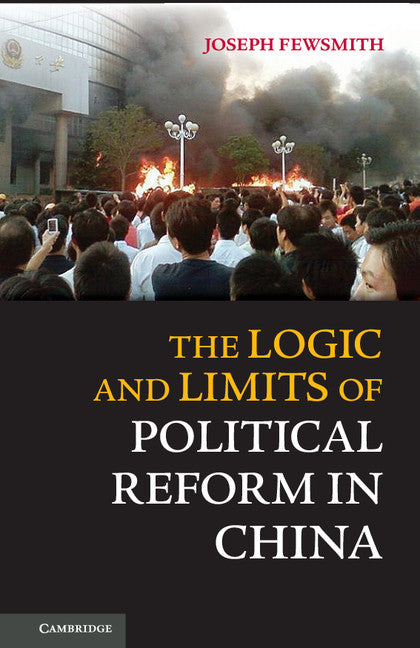Freshly Printed - allow 8 days lead
Couldn't load pickup availability
The Logic and Limits of Political Reform in China
Fewsmith explains why political reform in China started, why it has stalled and in many cases gone backward.
Joseph Fewsmith (Author)
9781107031425, Cambridge University Press
Hardback, published 18 February 2013
229 pages, 4 b/w illus. 4 maps
22.2 x 14.3 x 1.9 cm, 0.43 kg
'A leading scholar on China, Fewsmith examines the important reforms undertaken in China since the 1990s, ranging from inner-party democracy to deliberative democracy/consultative authoritarianism … this book excels in presenting specific instances of reform in China through the author's extensive field trips and research there. Moreover, it answers an important question regarding China's future and will be beneficial for students and scholars of Chinese political reforms, China's democratization, and China studies. Summing up: recommended. Upper-division undergraduate, graduate, and research collections.' X. Li, Choice
In the 1990s China embarked on a series of political reforms intended to increase, however modestly, political participation to reduce the abuse of power by local officials. Although there was initial progress, these reforms have largely stalled and, in many cases, gone backward. If there were sufficient incentives to inaugurate reform, why wasn't there enough momentum to continue and deepen them? This book approaches this question by looking at a number of promising reforms, understanding the incentives of officials at different levels, and the way the Chinese Communist Party operates at the local level. The short answer is that the sort of reforms necessary to make local officials more responsible to the citizens they govern cut too deeply into the organizational structure of the party.
1. The problem of governance in China
2. Bottom-up reform versus top-down development
3. Inner-party democracy
4. Wenzhou: social capital without civil society
5. Consultative authoritarianism: the Wenling model
6. Conclusion.
Subject Areas: Political economy [KCP], Political corruption [JPZ], Central government [JPQ], Political structure & processes [JPH], Comparative politics [JPB]


